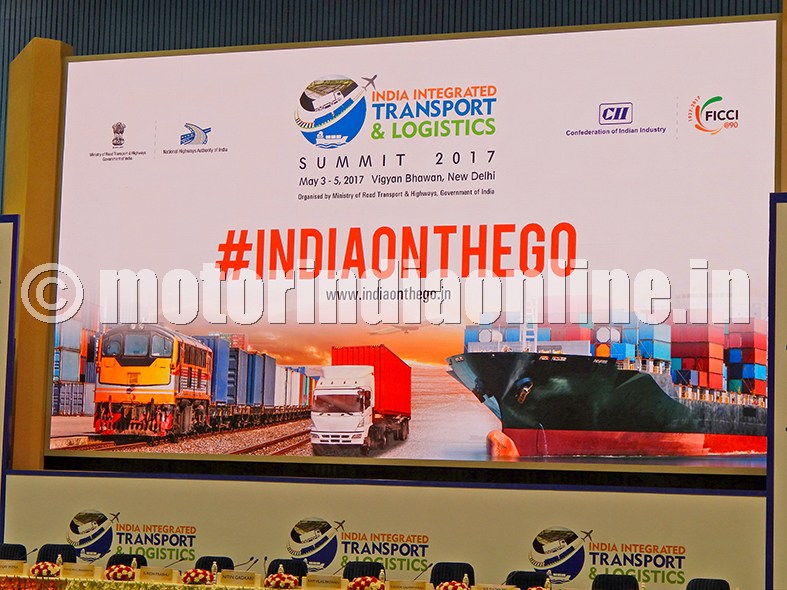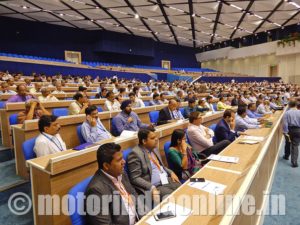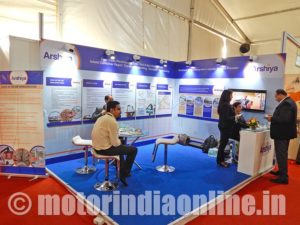An integrated system-based approach is mooted for the logistics sector, cutting across modes of transport and administrative geographies, while integrating capital investment with regulatory and policy development.
The Indus Valley civilisation that flourished in the Indian sub-continent 4,500 years ago is possibly the earliest instance of how logistics propel human societies to whole new realms. The streets were laid out in a structured order featuring straight lines in a modern grid pattern intersecting at right angles – a seminal planning for an evolving transportation! Now, in the 21st century, amid globalisation and international trade, the logistics industry, comprising of transportation, warehousing and value-added services (VAS) spanning across the modes of road, rail, sea and air is the ultimate lynchpin that sustains all our businesses and the nation’s economy altogether. With India aiming for a 10 per cent year-over-year economic growth to achieve $10 trillion GDP by 2032, the logistics sector is expected to grow at around 1.2 times the GDP growth to a cumulative worth $360 billion, up from the current $115 billion.
Yet, to cope up with the aimed transition and changing dynamics of trade, the logistics has to embrace technology, become more efficient and lean in processes, and facilitate inclusive growth. The Government is required to bring in structural reforms and roadmap for the sector, along with infrastructural changes, in the coming years to aid the transition, while the industry stakeholders are expected to bring in synergy and collaboration for the same. In this regard, the India Integrated Transport and Logistics Summit (IITLS) 2017 organised by the Ministry of Road Transport and Highways and National Highway Authority of India (NHAI), in association with CII and FICCI, presented an opportunity for the stake-holders, including representatives from governments and international agencies, public and private sector infrastructure developers and global experts, to discuss the challenges faced by the sector and devise sustainable solutions. The three-day conference and expo was held in New Delhi during May 3-5.
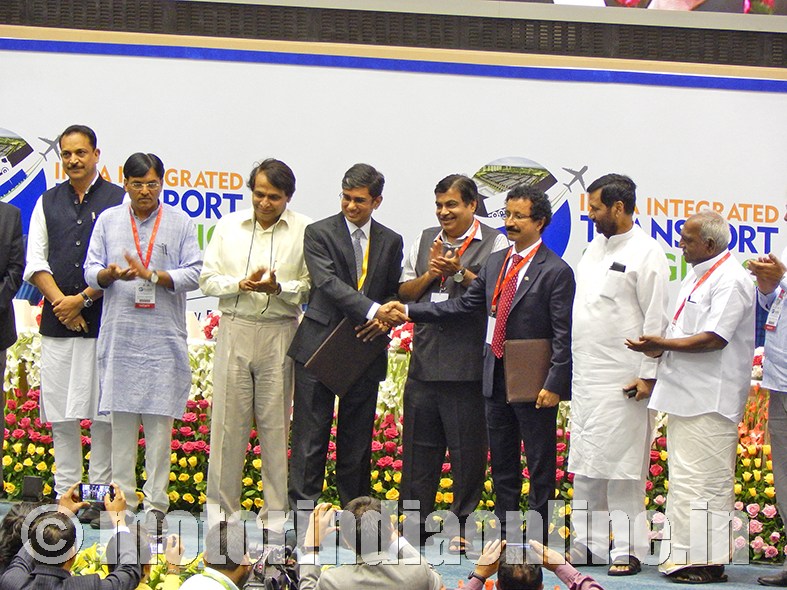
“There is an urgent need to bring down logistics cost in the country to globally comparable rates if we hope to achieve double-digit growth figures and ensure the welfare of the weakest sections of society”, said Mr. Nitin Gadkari, Union Minister for Road Transport, Highways and Shipping at the summit.
He added that the Government is committed in developing policy levers and initiating key infrastructural changes to chalk out the near and long-term roadmaps for the sector.
The discussions at the summit dealt with the broad themes of importance for the sector, namely, road freight corridors, multi-modal logistics parks, impact of GST reforms, inland waterways and coastal shipping, urban transportation, supply chain transformation, and standards and skills for logistics.
Need for Integration of logistics
According to the Logistics Performance Index (LPI) published by the World Bank last year, India has secured a score of 3.42, which is better than the world logistics index of 2.89, and has been ranked 35th globally, up by 19 positions as against the previous report. Yet, the report also highlights that the logistics cost in India is one of the highest, hovering as high as 14 per cent of the total value of the goods as against the average of 6-8 per cent in other developing nations. This adversely impacts the competitiveness of our economy, while every addition to product costs due to inefficient logistics shoots up inflation and wastages lead to scarcity. Further, losses due to fractured infrastructure is on the higher side as well, accounting for about 4.3 per cent of the GDP, and this cost may rise up to five per cent of the GDP by 2020 (as per Standard & Poor’s report).
This critical scenario of the logistics sector in India calls for an integrated, multi-modal logistics and transport policy which can bring down logistics costs by nearly half, while also addressing the poor infrastructure. The Government seems to have realised this, as the IITLS 2017 spearheaded by the Ministry of Road Transport is a first of its kind initiative that tries to gather momentum for an ‘integrated approach’ to the multi-modal logistics in India. The strategy from the Government side would be to adopt a “hub and spoke” model in place of the present “point-to-point” model. This can enhance the capacity of the industry by consolidation and mutual integration.
As the Union Minister for Railways, Mr. Suresh Prabhu, pointed out, seamless integration of different modes of logistics into a synergetic network can make the whole industry efficient and cost-effective. Citing an example, he said that up to 400 km roads can provide connectivity, but beyond that, railways must take over long-haulage so that capacity of the sector gets enhanced by way of decongestion.
This ‘integrated logistics’ policy inherently includes the critical aspects of infrastructure. Developing a network of multi-modal logistics parks (MMLPs) and freight corridors, along with inland waterway terminals and coastal shipping ecosystems are being mooted. For instance, 35 MMLPs are planned in the coming years to serve as centres for freight aggregation and distribution, multi-modal transportation, storage and warehousing and value-added services. These parks are expected to help the transition from the current scenario of point-to-point cargo movement to the ‘hub and spoke’ model as envisaged. Ways and means of reducing congestion in the existing road, rail and port networks and sustainable transformation of urban public transport are also part of the discussion.
Another policy area under the integrated multimodal logistics model is the transformation of the supply chain, with greater emphasis on innovative technologies and models of storage and networking production and consumption centres. Moreover, there is an apparent policy shift in recognising skill development as a key variable to logistics performance. “The imminent skill gap amid the transformation of the industry needs immediate attention by imparting specific functional skills in the sub-sectors of supply chain logistics”, said Mr. Rajiv Pratap Rudy, Union Minister of State for Skill Development and Entrepreneurship at the summit.
Lastly, it is imperative that end-to-end digitisation of logistics processes is encouraged and a dedicated ICT network for the purpose is established, said Dr. Hasmukh Adhia, Secretary (Revenue), Ministry of Finance. He added that the GST regime provides a perfect opportunity for the digitisation efforts in the inter-State logistics.
“The IITLS 2017 is the first serious effort to integrate the whole supply chain and logistics industry which is likely to have far-reaching impacts”, said Mr. Vineet Kanaujia, Vice President (Marketing), Safexpress Pvt. Ltd., sharing the bliss with other players in the Indian logistics scene on the government’s initiative to boost the industry. He observed that any movements of goods cannot be a standalone process and is incomplete without the other, adding that improved efficiency would result in more outsourcing opportunities for the sector from customers.
Exhibitors impress with exciting innovations
The exhibition at the summit that ran around the theme of logistics and transportation offered an excellent platform for local and international companies to understand the various opportunities available in different segments of the transport sector in India. The industry stakeholders had access to policy makers to know more about the investment policies and opportunities, while the manufacturers and service providers in every sub-sector of the logistics industry demonstrated their products to their fellow businesses.
Arshiya
Arshiya Limited is an integrated supply chain and logistic solution provider in India. A pioneer in the development of Free Trade Warehousing Zones (FTWZs)- operating two FTWZs with over 1.3 million sq.ft of world-class warehouses supported with the required eco system, the company presented its USPs in the country’s highly competitive field of logistics and warehousing. Amongst the largest private container train operator with pan-India operations and largest number of rail sidings in the country, Arshiya also owns an Inland Container Depot co-located with FTWZ and rail infrastructure. The company considers that with its all-encompassing range of world-class FTWZs, rail infrastructure, dedicated container yards, state-of-the-art cargo handling equipment, skilled manpower and integrated IT services, it is uniquely positioned to assist its clients in enhancing their business processes and supply chain.
North West Carrying Company (NWCC)
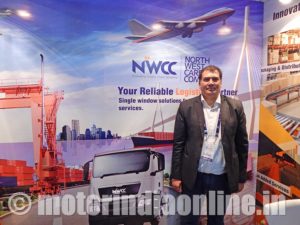
The NWCC Group is one among the key 3PL supply chain operators and service providers in India, offering end-to-end flexible and customised solutions to businesses across the country. Its clients are primarily from the telecom sector, accounting for over 70 per cent of their revenue. “Our focus lately is moving towards other verticals as well, including automotive, FMCG and cold storage”, says Mr. Ravi Kaul, AVP – Operations, adding that their USP is in the handling of critical deliveries and last-mile, end-to-end management and warehousing. NWCC has recently made its presence in Bangladesh, and the vision is to reach to the South-East Asia.
Mr. Kaul also highlights his company’s wide presence in the North Eastern region, including all the seven States, despite critical challenges out of terrain and infrastructure. NWCC has been awarded the ‘Best Road Distribution Company of the Year 2016’ by CII last year.
RCPL
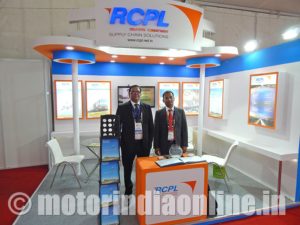
RCPL Logistics is one of the fastest growing players in the industry offering multi-modal logistics solutions across the country. We caught up with Mr. Nilesh Jain, General Manager (Corporate Communication), at its stall at the IITLS expo. Asked about his firm’s USP, he says that their network is genuinely integrated with all the three modes of transport – air, road and rail – offering hassle-free and efficient service to their clients, including Bosch, Motherson Sumi Systems, Imperial Auto and Tata International in the automotive sector.
Once the inland waterways infrastructure, which is currently under development, is established in India, RCPL will venture into that as well, adds Mr. Jain. With a daily handling capacity of over 230 tons, RCPL primarily handles part-load logistics, along with value-added services like packaging, warehousing and record management.
RoadRailer
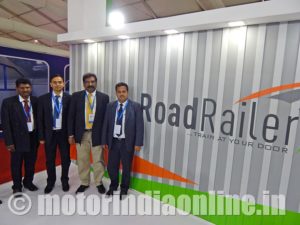
As a befitting product to the IITLS 2017’s theme of multi-modal integration, the RoadRailer (RR) is an innovative concept to integrated logistics. It is a bi-modal transportation product that can operate both as a covered wagon on rail and a semi-trailer on road. This can eliminate the time-consuming handling at rail terminals and provide seamless door-to-door transportation. It brings a synergy between the rail and road transport, combining the speed, safety and economy of the former and flexibility of the latter.
Manufactured by Kirloskar Pneumatic Co. Ltd. at Nashik, the RoadRailer operations are being tried out for the first time in the Delhi-Chennai sector as a pilot project by Indian Railways and KPCL. “This is an innovative, first-time product in India that promises enhanced safety, economy and efficiency benefits to voluminous, long-distance cargo, and the response to the product is overwhelming”, said Mr. Minesh Patel, General Manager – RoadRailer.
In terms of safety, there is a marginal gap of just 25 cm between two RR units, making cargo safe and secure. The slackless coupling feature in rail mode provides jerk-free movement, while air suspension enhances the ride quality on the road. The RR is also ABS-equipped. In terms of sustainability too, it scores in terms of reduced fuel consumption due to long haul by rail mode. Further, the faster transit time with quicker terminal turnaround and low operational and maintenance costs will help the end users. Saving in pilferage, packaging, and insurance are also assured.
Safexpress

As a prominent player in the of supply chain & logistics industry in India, Safexpress was quite conspicuous at the Expo. Offering value-added logistics services to over 5,000 enterprises across business verticals like Apparel & Lifestyle, Automotive, E-commerce, Healthcare, Hi-Tech, Engineering & Electrical Hardware, and FMCG and Consumer Electronics, the company works with business supply chains at every level, including distribution and inventory management.
“The need for TPL outsourcing in automotive sector is increasing, to which we are gearing up” says Mr. Vineet Kanaujia, Vice President (Marketing), adding that the sector is one of the advanced and highly competitive. According to him, three major challenges that the logistics industry is facing are related to infrastructure, skill development and regulatory bottlenecks. The Government is keen on addressing them, he says, especially with the new initiatives like the multi-modal integration and GST reforms in the coming months, along with increased FDI inflows and technology aiding the cause.
AkzoNobel

AkzoNobel is a leading supplier of paint coatings for commercial and automotive OEMs and refinishing segments. The company displayed its palette of offerings with the aim of reaching out to potential customers in the transportation sector including fleet owners, metro rails, Indian Railways, and marine logistics firms. In India, Akzonobel caters to the entire bus portfolio of Eicher and Ashok Leyland, along with a considerable share in Tata Motors buses. While its products are used for a wide range of applications in the automotive industry including interiors and exteriors, initial discussions for an association with the Indian Railways are on, said the company.
Tara International
Tara International was the only EV and sustainability mobility solutions provider for the transport and logistics industry. Based in Kolkata, the company has been developing electric vehicles (EVs) primarily catering to the commercial and utility (application-based) vehicle segments since 2008. This includes battery-operated three-wheelers like e-rickshaws, and e-auto rickshaws, and four-wheelers like 4-seater – 14-seater golf carts (in-door vehicles) and quadricycles, battery-driven taxi and LCVs, electric buses, garbage collection and dump trucks, etc.
They are also into retrofitting of electric drivetrain and battery electronics into public transport and commercial vehicles, along with the development of charging infrastructure, portable energy storage systems, and telematics.
Mr. Tara S. Ganguli, CEO, said that electric motorization of vehicles is fast catching up and is likely to evolve in the next 20 years to achieve fuel saving and mitigate CO2 emissions. He added that transport and utility vehicle operators are showing interest to retrofit electric systems in their vehicles. For instance, Tara International has tried out retrofitting of electric drivetrain in LCVs of DHL East as a part of its ‘Go-Green’ initiative. The company is expanding its product portfolios with new products and utility vehicles, including two-wheelers.
